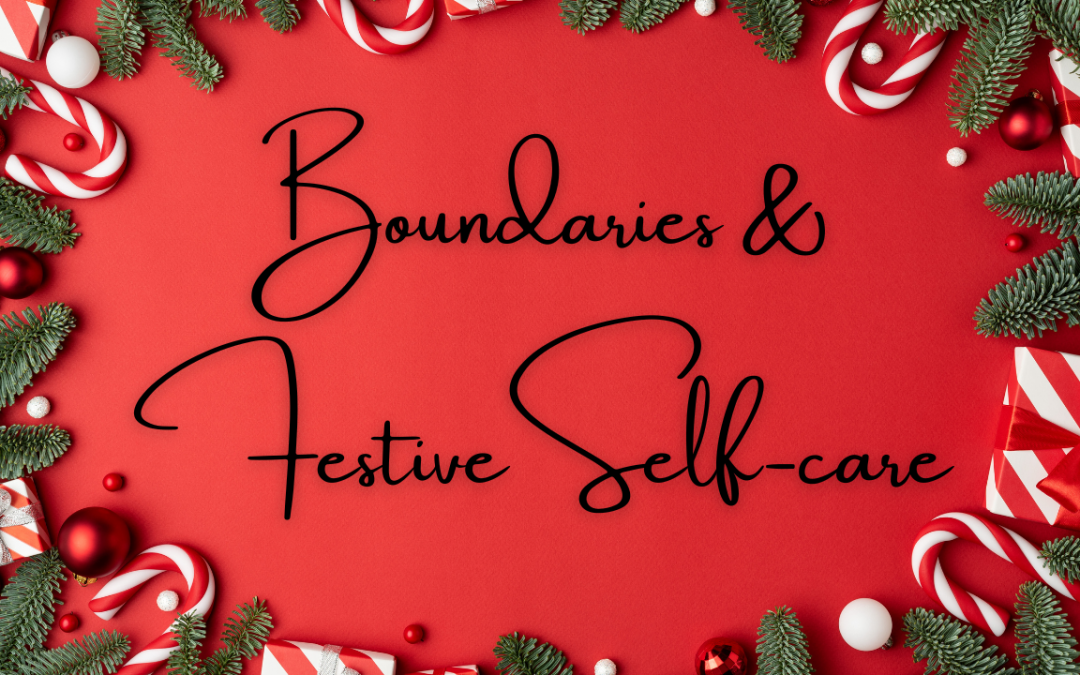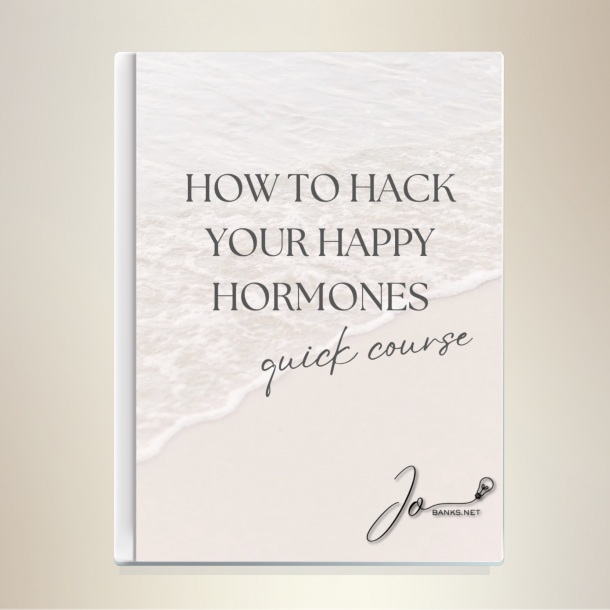Listen to the article (6:58 minutes).
As we’re now at that time of year again, I thought it timely to share a reminder about setting boundaries and taking care of yourself during the festive period. I’ve previously discussed these two topics in my posts, How to Set Boundaries and People Pleasing and Festive Self-care.
For many of us (me included), Christmas can be fraught with unrealistic expectations, drama and complex family dynamics. Wanting to do something different, altering long-standing traditions or changing deeply entrenched familial roles can be incredibly anxiety-inducing.
To keep the peace, and often because we just don’t know how to set adequate boundaries or take care of our own needs, we continue to do what we’ve always done, burning ourselves out and causing us (and probably those around us) to be unhappy.
Setting Boundaries
As I mention in that first article, boundaries tend to fall into four categories, emotional, mental, time, and physical. I give some great examples of how to address each of those, so make sure to read it if you have difficulty with boundary setting.
For many of us, as children, we simply weren’t allowed to have boundaries, and as we mature into adulthood, unfortunately, our original roles in the family dynamic continue despite our ages.
I’ve seen it in my own life as well as with clients where the parent (or ‘grown up’, e.g. aunty, uncle, grandparent, etc.) seems incapable of recognising that we are now adults, able to make our own decisions which may not be in line with their expectations. So often, this can lead to burnout, resentment and hostility.
It’s important to point out here that:
- Boundaries are designed to protect YOU, not the other person.
- The person who has the most to lose when you set a boundary will be the one most upset by them.
- People get upset when you set boundaries because of a perceived loss of control.
- Where there are no boundaries, the other person’s needs are being met at your expense.
- People with emotional maturity DO NOT react negatively to realistic well-explained boundaries.
Festive Self-care
As I discuss in the second article, many of us abandon our needs, especially at Christmas, in order to make everyone else happy. That can, again, lead to burnout and resentment. As I’ve discussed in previous articles, our energy emanates two metres out from us. Therefore, if we’re in a negative state, e.g. resentful, stressed, angry, or passive-aggressive, we will undoubtedly infect those around us with those exact emotions.
Another excellent reason to take care of yourself over the festive period, especially if you have children, is that they subconsciously watch and absorb EVERYTHING you do. If you’re the type of person that never sits down and runs around like crazy doing everything for everyone displaying negative emotions, that’s exactly what you are teaching your children to do when they grow up.
So not only do we owe it to ourselves to weave some self-care activities in daily over the festive period, but it will undoubtedly benefit those around us too.
10-minute Happiness Challenge
I have talked about this in other articles, but finding 10 minutes a day to do something just for you that makes you happy will help you significantly manage your nervous system and build new neural pathways for happiness.
Schedule your chosen activity in your diary as you would any important meeting. It could be a bubble bath, walking, reading, meditating – whatever makes you happy – but if you make a commitment to yourself, it’s important to adhere to it.
One way to build new ‘habits that stick’ is to tag the thing onto something you already do daily, e.g. brush your teeth, make the first brew of the day, etc. That way, it’s easier to remember.
Breathwork for Stress Relief
If you’re feeling particularly stressed, anxious or overwhelmed and want to bring your nervous system back to baseline (homeostasis), I’ve recently discovered a breathing pattern that does just that:
- Breathe in through the nose for 4 seconds
- Hold for 2 seconds
- Breathe out slowly through the mouth (as if you’re blowing through a straw) for 8 seconds
- Hold for 2 seconds
- Repeat for at least 2 minutes (5 is better!)
This is a clinically proven technique that I learnt this week when listening to a podcast with Dr. Daniel Amen, a practising psychiatrist.
On Tuesday, I was driving back from a meeting, and I recognised that my anxiety levels were significantly higher than they should be. I couldn’t use some of my regular tools for managing my ‘state’ because I was driving when suddenly, Dr Amen described this simple but brilliant breathing technique.
I immediately put it into practice, and within about 5 minutes, I felt completely calm and relaxed. How quickly and thoroughly this worked for me was nothing short of astounding. So, I recommend taking a screenshot of this method and using it whenever you feel triggered.
Again, if you want more information on boundaries and self-care (especially if you identify as a people pleaser), I recommend reading my previous two articles.
Finally, I wish you and your families a very merry and peaceful Christmas.



